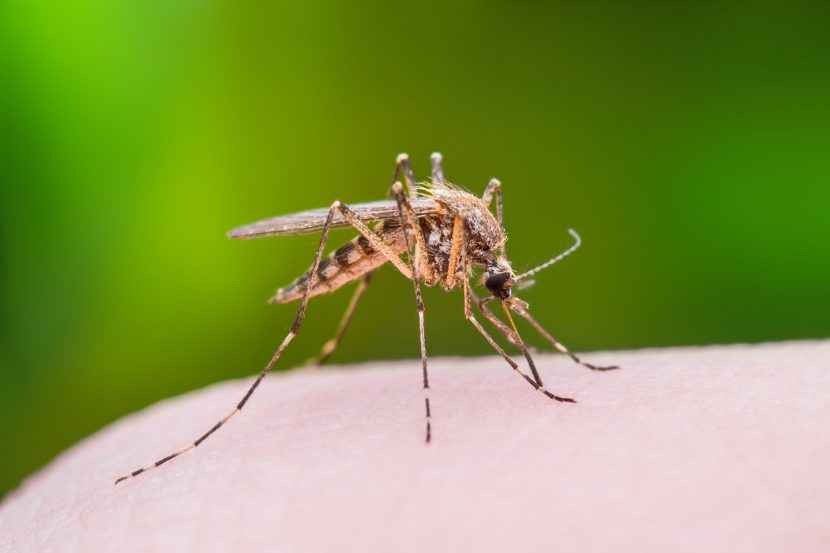Apparently The Way to Avoid Mosquito Bites is to Listen to Electronic Music

Everybody likes a little mood music when they’re being romanced, but apparently, the mosquitoes that carry dengue fever are an exception to this rule.
This is the word according to a recent scientific study reported in the online publication sciencedirect.com, at least. It seems that music had the precise opposite effect on these little creatures; it reduced their interest in, um, romance rather substantially. It also reduced their effectiveness as bloodsuckers, reduced their aggressiveness, and interrupted their flight patterns.

Of course, the study didn’t use the music of rhythm & blues master Al Green, whose classic hit Let’s Stay Together made him once claim he had lost count of the number of women who claimed they wound up pregnant after being wooed to a soundtrack of his hit songs.
The mosquitoes were “listening” to a song called Scary Monsters and Nice Sprites by the electronic dance music (EDM) American artist known as Skrillex. The song, while terrific for dancing in a club or at a big party, is not the kind of melodic, peaceful music any creature has the right to hope for when its sexual habits are under a microscope in a lab study.

The study operated on the thesis that all creatures are affected by sounds in their environment, and that those sounds impact not just the frequency of copulation but the very survival of the species. Insects emit low-level sounds to attract mates, but some sounds that are foreign to them interfere and can disrupt their sexual rhythms and other habits.
When sounds they interpret as noise disturbs their environment, it throws them off and can even interfere with their ability – in the case of this mosquito – to suck blood from a host. Which brings us to the critical point of the study: can noise be used to discourage these mosquitoes from attacking, biting, and infecting human hosts and thereby reduce the danger of dengue fever in regions where it is prevalent?

The study revealed that female mosquitoes who heard the EDM track held off approaching their mates and therefore wooed their partners significantly less often. Furthermore, they did not suck blood as enthusiastically as their non-exposed counterparts.
Apparently, EDM just isn’t the right music to put lady mosquitoes in the mood. In the case of this Dengue Vector, known as “Aedes Aegypti,” figuring out ways to dampen their sexual desire is precisely the goal of this and other studies because dengue fever is a global scourge.
While it may sound amusing to consider the “ins and outs” of the mosquito’s love life, dengue fever is a worldwide burden that scientists and researchers are struggling to address. One study suggested there were as many as 100 million symptomatic cases of dengue fever around the globe in 2010. Other studies put that estimate much higher.

Because people travel far more widely and more often today than they did even 50 years ago, the virus has been found on every continent, including Southeast Asia, Southern China, and parts of South America – with the exception of Antarctica.
The mosquito that carries it is found in tropical and sub-tropical climates like Thailand, where, in fact, it’s so common that researchers have found the mosquitoes prefer human blood to animal blood because they have become so accustomed to it.
https://www.youtube.com/watch?v=DsHIC6x9mCQ
People often mistake a “mild” case of dengue for the flu because initial symptoms are similar: headache, joint pain, nausea, and vomiting. But, in fact, a severe case of dengue fever can lead to hemorrhagic fever, bleeding, and even death. One study estimates that there were 390 million cases of dengue fever last year, and of those, 96 million resulted in serious illness.

So, it’s easy to poke fun at the idea of studying mosquitos’ love lives and imagine how boring it would be to watch them interact in a lab while EDM blares from speakers. But, in fact, the scientists doing this and other studies are engaged in urgent work that may one day save millions of lives.
If sound can be used to impede mosquitos’ behavior in their natural environment, not just labs, citizens and travelers will be much safer indeed.
